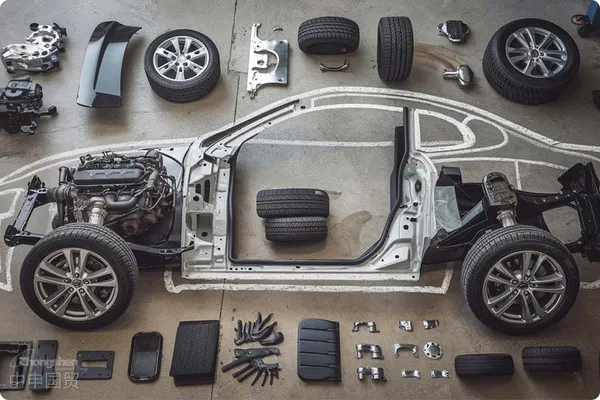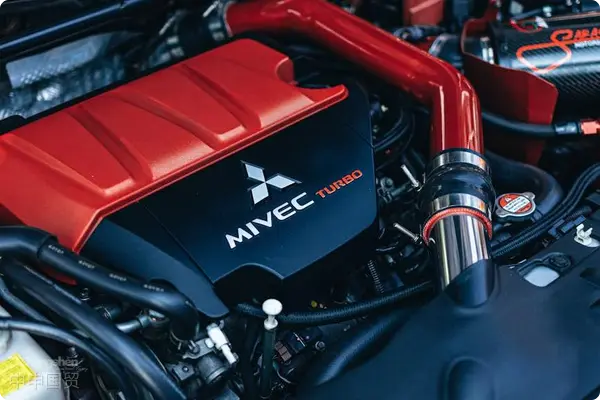- Shanghai Zhongshen International Trade Co., Ltd. - Two decades of trade agency expertise.
- Service Hotline: 139 1787 2118
With the continuous development of the global automotive industry, the demand in Russias auto parts market is also growing. As an auto parts exporting company, choosing the right trade agent to explore the Russian market has become a focus for many enterprises. This article will introduce the relevant aspects of trade agents for auto parts exports to Russia, helping you better understand this field.

I. Industry Situation Data
According to relevant industry reports, the size of Russias auto parts market is expanding year by year and is expected to maintain steady growth in the coming years. Among these, the demand for auto components, tires, lubricants, and other products is particularly strong. Additionally, the Russian government has introduced a series of policies to encourage the development of the domestic automotive industry, providing more opportunities for auto parts exporters.
II. Concept of Trade Agents for Auto Parts Exports to Russia
Trade agents for auto parts exports to Russia refer to intermediary agencies that represent exporting companies in conducting sales, promotion, procurement, and other business activities in the Russian market. Trade agents typically possess extensive market experience, professional sales teams, and broad customer resources, enabling them to help exporting companies quickly expand their market presence and improve sales performance.
III. Operational Process of Trade Agents for Auto Parts Exports to Russia
Finding a Suitable Trade Agent
Exporting companies can find suitable trade agents through online searches, participation in trade shows, or consultations with industry associations. When selecting a trade agent, factors such as qualifications, reputation, experience, and market coverage should be considered.
Signing an agency contract
Signing the Agency Contract
The exporting company and the trade agent sign an agency contract, clearly defining the rights and obligations of both parties, the scope of agency, commission rates, settlement methods, and other details. After signing the contract, both parties should fulfill their respective obligations as agreed.
Product Promotion and Sales
The trade agent formulates a product promotion plan based on the exporting companys requirements, conducting product publicity and promotion through various channels. Simultaneously, the trade agent is responsible for communicating and negotiating with customers to facilitate transactions.
Procurement and Shipment
5. After - sales service
The trade agent procures auto parts products from the exporting company based on customer orders and arranges shipment logistics. During procurement, the trade agent must strictly control product quality to ensure it meets customer requirements.
After-Sales Service
Contracting Parties
The trade agent handles customer after-sales service issues, including product quality problems, returns, and exchanges. The exporting company should work closely with the trade agent to jointly resolve customer issues and improve customer satisfaction.
Scope of agency
IV. Key Points of the Agency Contract for Auto Parts Exports to Russia
Commission Rate
The contract should clearly specify the commission rate for the trade agent, as well as the calculation method and payment terms for the commission.
Product Quality
The contract should clearly define the quality standards for automotive parts provided by the exporting company, as well as the trade agents responsibilities for quality control during procurement and sales.
5. After - sales service
The contract should specify the trade agents responsibilities for after-sales service, including the processes and methods for handling customer complaints, returns, and exchanges.
6. Liability for breach of contract
The contract should clearly outline the liabilities for breach of contract that may arise during the execution of the contract, as well as the methods for assuming such liabilities.
7. Dispute resolution
The contract should specify the dispute resolution methods between the parties, including negotiation, arbitration, and litigation.
V. Key Considerations for Automotive Parts Export to Russia
Understanding the Russian Market
Before entering the Russian market, exporting companies need to thoroughly understand factors such as market demand, competition, and legal regulations. Relevant information can be obtained through trade shows, consultations with local businesses, and collaboration with trade agents.
Select Suitable Products
Exporting companies should select suitable automotive parts based on the demands of the Russian market. Products should be reliable in quality, reasonably priced, and compliant with Russian standards.
Quality Control
Product quality is a critical factor for exporting companies entering the Russian market. Companies should strictly control product quality to ensure compliance with Russian standards and customer requirements. Quality can be improved by establishing a quality management system, strengthening raw material procurement management, and enhancing production process control.
Intellectual Property Protection
Russia places great emphasis on intellectual property protection. Exporting companies should take steps to protect their intellectual property through measures such as patent applications, trademark registration, and confidentiality agreements.
The agency or individual should comply with laws and regulations, including international trade laws and regulations, customs laws and regulations, etc., to ensure that the agency business is legal and compliant.
Exporting companies must comply with Russian laws and regulations, including trade laws, tax laws, and environmental regulations. Legal compliance can be ensured by consulting local lawyers and collaborating with trade agents.
Building Strong Partnerships
Exporting companies should establish strong cooperative relationships with trade agents and customers to jointly develop the Russian market. This can be achieved through regular communication, providing high-quality services, and resolving customer issues.
In summary, trade agents for automotive parts exports to Russia are a key pathway for entering the Russian market. Exporting companies should select suitable trade agents, sign agency contracts, develop product promotion plans, control product quality, protect intellectual property, comply with laws and regulations, and build strong partnerships to jointly develop the Russian market.
Related Recommendations
? 2025. All Rights Reserved. Shanghai ICP No. 2023007705-2  PSB Record: Shanghai No.31011502009912
PSB Record: Shanghai No.31011502009912









